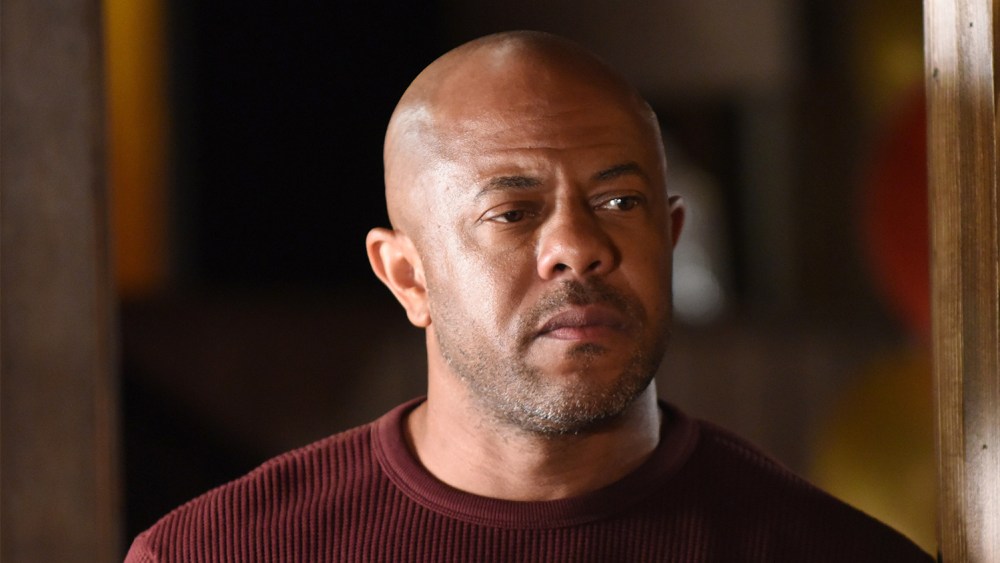Rockmond Dunbar, an actor from the television series “9-1-1,” is scheduled to go on trial Tuesday on claims he was fired because of his religious beliefs, which prohibited him from getting the COVID-19 vaccine.
Dunbar’s character, Michael Grant, was dropped from the show in November 2021, one month after studios began requiring actors and others on set to get the COVID-19 vaccine. Dunbar claims to be a member of the Ministry of Universal Wisdom, which says it is sinful to inject chemicals that are “against natural law.”
Disney’s 20th Television alleges that Dunbar came up with false religious excuses to avoid complying with vaccine mandates. During a pre-trial investigation, the company’s lawyers discovered that Dunbar was also taking other medications, including steroids for shoulder pain, and had been receiving regular injections of synthetic testosterone from The Man Clinic since 2018.
The case is a stark reminder of the coronavirus era, when Hollywood unions negotiated complex safety protocols, including frequent testing and different distancing and mask requirements for different production zones.
By the time the rules were repealed in 2023, many people had long since grown tired of them.
At trial, Disney’s lawyers will try to avoid re-litigating over coronavirus protocols. Jurors will say they respect Dunbar’s personal choices, according to exhibits prepared for them. But the question, they would argue, is whether the choice stemmed from sincere religious belief.
Under the Civil Rights Act of 1964, employers are required to make reasonable accommodations for their employees’ religious practices.
The Universal Wisdom Congregation was founded in 1975 by New Jersey chiropractor Dr. Walter Schilling. Members have long used church teachings to circumvent vaccination requirements in schools.
Mr. Schilling, 82, was scheduled to testify at trial, but recently indicated he was too ill to travel to Los Angeles. Instead, his deposition will be heard by a jury.
Mr. Schilling testified that the church does not have a place of worship or regular meetings. Members can join by submitting an application and membership fee.
“Many members of the general public have our beliefs, but they don’t have a place to go to see those beliefs,” Schilling said. “So what happened when they started making things mandatory was that it actually motivated people to attend church.”
He also said injecting himself with synthetic testosterone or other prescription drugs would be “blasphemy.”
Dunbar’s lawyers argued that he held “nuanced” beliefs that blended CUW with Buddhist teachings and African Yoruba beliefs.
“Since at least 2014, Plaintiff has held sincere religious beliefs that prevent her from receiving the vaccine because she believes that vaccines bind her soul to earth, thereby preventing her from ascending to heaven and being with God after death,” the attorneys argued in a pretrial memo.
Dunbar, his wife Maya, and “9-1-1” showrunner Tim Minear are also expected to testify.
Dunbar’s lawyers argued that full compliance with CUW practices was not necessary for Dunbar’s conviction to be honored.
“I do not oppose Western medicine, which is created with God’s consent, and which does not cloud our communication with God,” Dunbar said.
At the time of discovery, Dunbar was unable to turn over most of his medical records to Disney’s lawyers. Lawyers ultimately obtained records from 44 medical providers, including Dr. Fung of The Mann Clinic. Fung was giving him twice-weekly testosterone injections and injections of the chemotherapy drug anastrozole, which is meant to prevent breast growth, a side effect of testosterone.
Judge Dolly Gee criticized Dunbar’s “egregious” failure to disclose evidence.
Dunbar’s lawyers tried to block his medical records from being used at trial, saying they were irrelevant, but the judge disagreed.
“Dunbar’s medical records include conduct that is contrary to the tenets of CUW’s religion,” she wrote. “This evidence is relevant to determining the reliability of Dunbar’s beliefs as to whether they are sincere or merely opportunistic.”
Asked in a deposition how he determined that vaccines were contrary to his belief system while other interventions were permissible, Dunbar said, “I talked to God.”
“I believe God told every person in this world, either before they got their shot or when they sat down to get their shot, not to get their shot,” Dunbar said. “And they chose to do it. So that was their spiritual test, and they failed.”
Gee previously rejected many of Dunbar’s other legal claims, but left it to a jury to decide whether his religious beliefs were sincerely held. Efforts to resolve the case before trial failed.

